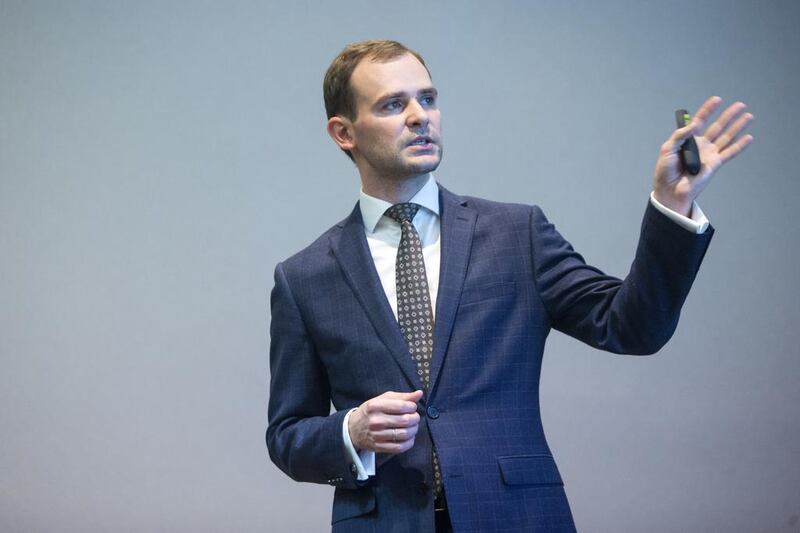ABU DHABI // Russia will be among the suppliers of enriched uranium needed for the UAE’s nuclear power plant, the Russian State Atomic Energy Corporation confirmed.
The 15-year commercial contract between Rosatom and the Emirates Nuclear Energy Corporation could also result in further collaboration.
“Six leading international nuclear fuel suppliers have been contracted to provide a series of nuclear fuel services to cover Enec’s requirements, these include Russian company Tenex, part of Rosatom, who will provide uranium concentrates, conversion services and enrichment,” an Enec spokesman said.
“We are constantly meeting to try to understand how we can help with the current project of the nuclear power plant in Barakah,” said Anton Moskvin, Rosatom’s vice president of marketing and business development. “The actual deliveries will start next year, because you need several years to prepare fuel for the power plant itself. It will be produced in Korea and delivered, so we have only one year left to do that.”
He said the UAE was a strong player on the international nuclear market. “We want to be strategic partners and a part of this very positively developed nuclear project, not just the construction of one power plant,” he said. “I think everyone wants to be a part of this kind of project.”
Mr Moskvin was speaking on Wednesday on the sidelines of a Middle East nuclear power briefing where experts convened to discuss regional opportunities in the industry.
“You need to have a good mix,” said Dominic Holt, director of deals in capital projects and infrastructure at Pricewaterhouse-Coopers. “I’m not advocating one technology over another but, around the world, people are looking into getting security of supply and low-carbon environmental certainty as well as the price. GCC governments are very focused on a green economy and where the power is going to come from as well as whether we are making best use of oil and gas resources, so it’s also about balance.”
He said nuclear sat well within that balance, along with solar and wind. “It’s low carbon and could be cheaper if we can build [power plants] well and there is a security of supply, because uranium is very abundant,” he said. “In the GCC, we also have the water element and it’s very important because we need to produce a lot of it. Nuclear has some advantages because if you’re building solar, you get the power in the day and you need that during the peak load, while with nuclear, you could actually take the power during the day for the peak loads and divert it to the night when the loads are lower to work independent desalination plants.”
Lady Barbara Judge, former head of the UK Atomic Energy Agency, said women could play a major role in improving trust in nuclear.
“Educated women are often the loud voices against nuclear in countries like the UK, Italy and France,” she said. “Whereas in this region, it is educated women who are for nuclear. What the industry needs is to have, in every country and on every nuclear power plant that is built, including the UAE, an oversight body that includes women so that they can speak as senior leaders for the inclusion in the energy mix.”
cmalek@thenational.ae






